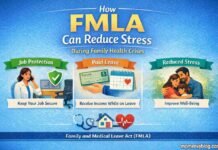While all it takes is an associate degree in nursing and passing the state licensing exam to become a registered nurse, more and more nurses are going straight into getting a bachelor of science in nursing (BSN). The additional time taken to get this qualification, along with the increased cost of study are worth it for many nurses, who find that having a BSN can improve their career in several different ways. From more employment opportunities to better options for career progression, the BSN is becoming the standard for nurses these days as more and more employers strive to achieve Magnet Status with a better-educated nursing workforce. Studies have found that BSN-educated nurses tend to lead to better patient care, so the outlook is clearly a better one for all parties involved. Here are some of the main reasons why all registered nurses should consider getting a BSN.
BSN Study Opportunities
Compared to in the past, getting your BSN as a registered nurse has become much easier. Today, registered nurses are able to access a wide range of programs available online designed to help them improve their qualifications and gain this degree. In addition, if you are already working as a registered nurse, there is no need to study for four years to get the BSN with programs available that are designed to build on what you already know, such as the ADN-BSN bridge program. Online degrees make it possible for registered nurses to improve their education in a more flexible manner and continue working full-time while studying if needed.
Improve Employment Opportunities
With an increasing number of healthcare employers now stating that a BSN is a minimum requirement for the nurses that they are prepared to hire, not having this qualification as a registered nurse could be holding you back in your career, even if you have a lot of experience. A 2020 survey carried out by the AACN found that more than 90% of BSN graduates will find employment within six months of graduating, and many are offered employment immediately by the healthcare companies that they gained clinical experience with. The truth is that BSN-qualified nurses are in much higher demand today with 80% of employers having a strong preference for them. A study carried out by New York University in 2019 found that registered nurses with a BSN are more prepared for the role compared to nurses who trained with an ADN.
Graduate School Opportunities
Along with more opportunities for employment across the board as a registered nurse, getting your BSN can also help you find many more career progression opportunities. For the most part, bridge programs that are designed to help you earn a more advanced nursing qualification, such as the BSN-DNP online program from Marymount University, require students to hold a minimum of a BSN when applying. If you want to further your nursing career in the future and have ambitious goals of becoming a family nurse practitioner, nurse manager or nurse educator, it’s likely that you will need to have a BSN to be in with a chance of training to work in these roles.
Improved Career Advancement
Even if your career advancement plans as a nurse do not involve attending graduate school, not having a BSN might still be holding you back. A BSN is often the minimum requirement for nurses who want to advance their careers, no matter what role you’re working towards getting into. Nurses with an associate degree often have a more limited range of career opportunities due to the fact that employers are actively seeking out BSN-qualified nurses and tend to favor them when providing career advancement opportunities including additional training courses for nursing specialties and on-the-job training.
It Might be Legally Required
In 2017, New York State passed the first legislation of its kind, requiring all registered nurses to gain a BSN within ten years of entering the workforce. There are several reasons behind this including the fact that studies show BSN nurses to provide better standards of patient care, be more prepared for the role, and tend to lead to lower patient mortality rates, reduced re-admissions, and improved standards of patient care. While the BSN-in-10 legislation is currently only active in New York State, we can expect more states to follow suit in the near future as healthcare experts and lawmakers begin to realize the importance of having highly-educated nurses in the workforce. As a result, if you are currently a registered nurse but do not have a BSN, there may come a time in the future where you’ll be required by law to get one in order to continue working in this role.
Improved Patient Outcomes and Care
For most nurses, patient care is the most important part of their job. Many nurses get into this profession because they are naturally caring people who want to be there for others and give their best every day. If you are a nurse who is committed to improving standards of patient care and dedicated to only providing the best, the need to get a BSN is going to make sense to you. There have been several studies in the past that provide a clear link between BSN-educated nurses and the improvement of patient care. In facilities where a large majority of nurses are educated to this level, there is a lower incidence of patient problems.
A higher number of BSN-educated nurses typically leads to lower rates of infections acquired in hospitals and healthcare facilities, reduced risk of patients suffering from pressure ulcers and post-operative deep vein thrombosis, and lower patient re-admission rates across the board. In addition, studies have found that nurses with a BSN have a positive impact on post-surgical mortality rates in patients. A University of Michigan study carried out in 2014 found that a 10% increase in BSN-holding nurses led to an 11% decrease in the patient mortality risk.
Getting a BSN is likely to be the minimum requirement for a role in nursing in the future, with the state of New York setting the tone for others. Getting a BSN won’t just benefit individual nurses, but also patients and the healthcare industry as a whole.













